INTRODUCTION
Friends, this conference provides all of us with an opportunity to
reflect on where the journey of ‘safeguarding’ in the Church has taken
us. I am honoured – especially as a previous National Board member – to
give the opening address. I encourage you to participate fully in this
important event: by listening carefully to the presentations, by
engaging in the discussions and feedback, and by offering your
suggestions about how we might build upon the progress that we have
already made.
NATIONAL BOARD FOR SAFEGUARDING
It is now twenty years since the publication in 1996 of the so-called
‘green book’: _Child Sexual Abuse: Framework for a Church Response_. Ten
years later, at their _ad limina_ visit in 2006, Pope Benedict XVI set
out for the Irish Bishops the principles by which to guide our efforts
in safeguarding. He said:
“_In your continuing efforts to deal effectively with this problem, it
is important to establish the truth of what happened in the past, to
take whatever steps are necessary to prevent it from occurring again, to
ensure the principles of justice are fully respected and, above all, to
bring healing to the victims and all those affected by these egregious
crimes_’.
Shortly after this the National Board for Safeguarding Children in the
Catholic Church in Ireland began its work in preliminary mode, although
it was not formally incorporated until 2008. The Board has helped to
bring us a long way. Still, we recognise that when it comes to
safeguarding we can never say we have arrived at the point where our
work is done. We continue to learn from best practice which is always
evolving; we remain open to new ways of going about our work, to
learning from our mistakes, and to identifying and responding to new
challenges and emerging risks. In short, we avoid complacency.
When it comes to the protection of our little ones, and those who are
most vulnerable, we want only the best, knowing that they are special in
the eyes of God. Jesus said (Mark 9:37): “_Whoever receives one such
child in my name receives me, and whoever receives me, receives not me
but him who sent me_.”
Today, I want to thank Mr John Morgan (Chairman) and the members of the
National Board who continue to help us identify, develop and disseminate
best practice in the field. I thank Mrs Teresa Devlin and the staff of
the National Office for the huge amount of work that has gone into the
production and ‘roll-out’ of the revised Standards and Guidance
materials during the past year. Of course the implementation of the
Standards will take substantial commitment and effort from all of us,
but great credit is due to all those who contributed their time and
expertise in refining the materials and ensuring their compliance with
developments in the statutory sector – north and south.
SAFEGUARDING VOLUNTEERS IN PARISHES
An occasion like this also provides me with an opportunity to say thanks
to you – the people who help to translate the words and aspirations on
the pages of our safeguarding manuals into action and change on the
ground. Risk to children, young people and the vulnerable is minimised
when there is a pervasive ‘culture’ of safeguarding with everyone
playing their part at every level of Church life. You represent the many
hundreds of volunteers who care enough about children and their Church
to become involved in this essential task. As designated persons,
training facilitators, local and diocesan safeguarding representatives
and Committee members, you are exercising your baptismal calling by
bringing your gifts and expertise to the service of your local parish,
diocese, religious community or congregation. It is your active
commitment and vigilance, with the support of clear standards in
Safeguarding and Guidance materials, which helps to maintain an
environment that is as safe as possible for our children and young
people.
JUBILEE YEAR OF MERCY AND THE SYNOD ON THE FAMILY
We are in the Jubilee Year of Mercy, and Pope Francis is encouraging all
of us to become more actively involved in the work of mercy. I see the
work of safeguarding as a prophetic work of mercy in the Church today.
This time last year I had the privilege of being present with Pope
Francis at the Synod on the Family. Delegates from all over the world
shared with us their experiences of real threats to children and the
vulnerable. We heard about dangers to children due to forced migration
of families, and about young people getting caught up in international
networks of human trafficking. Other delegates spoke to us of the
exploitation of children in prostitution or as cheap labour, as child
soldiers or for organ trafficking.
We have seen for ourselves shocking scenes of little children being
handed from choppy waters into the arms of rescuers, or washed up like
discarded dolls on the seashore. I found it very disturbing during the
summer to read that more than 600 unaccompanied children wander around
the Calais refugee camp, clearly in a situation of great risk.
The risks are not always far away from us. We have learned to our shame
that abuse of young people too often occurs in the very places where one
might have thought they would be most safe and cared for, including,
sadly, in their homes, schools, and parish communities.
Let us remain alert to potential risk situations here in Ireland with
our increased rates of homelessness, forced home repossessions and
alarming levels of violence in the home. We cannot ignore the bleak
solution for children and their parents who are spending long periods in
direct provision centres for asylum seekers in this country. Consider
also the new challenges presented by social media, easily accessible
pornography on the internet and the vulnerability of young people to
those who would entrap or deceive them.
Let no one say the work of safeguarding is done. It remains an essential
outreach of mercy towards the marginalised, the neglected and those most
at risk. You are at the vanguard of this important work of mercy,
witnessing prophetically from within the Church to the need for society
always to be on the alert for danger and exploitation.
2016 CONFERENCE
This year’s conference will include a particular focus on two new
standards to guide our safeguarding work: ‘Care of the Complainant’ and
‘Care of the Respondent’.
Pope Francis, by establishing and fully backing the work of the
Pontifical Commission for the Protection of Minors, has placed the
healing of victims of abuse firmly within the work of the Gospel of
Mercy. He sees outreach to those who have suffered abuse, and their
families, as “an expression of the compassion of Jesus”. He has
encouraged us to meet with victims and their loved ones, to listen to
those who have suffered so greatly and to ask their forgiveness.
This essential work is not easy for victims and survivors and it is
challenging for all of us in the Church. And mistakes have been made. I
have at times failed to realise how easily my own words and approach can
unintentionally come across as hurtful or defensive to those who have
been betrayed and let down by Church leaders or other personnel in the
past. As I said at our first National Conference last year, I am humbled
by the resilience and fortitude of those who come forward to share their
painful memories. There are deep emotions involved and sensitive
listening is needed so that the Church’s response, both during and after
any investigation, is compassionate, merciful, pastoral, proper and
just.
Responding to survivors is particularly challenging and sensitive when
it comes to issues of redress and compensation. These issues also need
to be approached with openness, respecting the right to justice for
survivors, respondents and all concerned.
A few years ago it would have been very difficult for us to address the
issue of pastoral care for respondents at a Church safeguarding
conference. Even today it is important for us not to deflect from the
immense hurt and trauma of complainants by considering care for those
who are accused of abuse. The work of mercy, however, compels us to
reflect on the impact of accusations on those accused, on their family
members and their communities.
For those falsely accused it can be very difficult for them to overcome
the mistrust and suspicion that sometimes accompanies lengthy criminal,
civil and canonical processes. Despite a lot of media attention and
speculation, bishops and religious superiors are often unable to clarify
publicly the precise status of the investigation and the details
surrounding it. No two cases are identical. Even when criminal, civil or
canonical processes are concluded, risk assessments by professionals may
indicate continued grounds for concern or intervention. Still, having
regard to all the particularities of a given case, Church authorities
must remain open to constructive criticism about the implementation of
our procedures. There remains much work to be done in this regard and I
trust that the new standard and associated guidance will assist us with
this effort.
Regarding priests and religious who are found guilty of the sexual abuse
of minors, Pope Benedict XVI had strong words to say in his letter to
the Catholics of Ireland in 2010:
“You betrayed the trust that was placed in you…you must answer for it
before Almighty God and before properly constituted tribunals. You have
brought shame and dishonour upon your confreres; you violated the
sanctity of the sacrament of Holy Orders… “
He went on:
_”I urge you to examine your conscience, take responsibility for the
sins you have committed, and humbly express your sorrow…Openly
acknowledge your guilt, submit yourselves to the demands of justice, but
do not despair of God’s mercy”._
The Church’s response to those found guilty is one of the most delicate
and controversial issues in safeguarding. In a society which demonises
and clamours for permanent exclusion of such offenders one wonders how
to strike the balance between mercy and justice, seeking redemption for
the offender while always being careful not to compound the lifelong
trauma of survivors. Whilst we must be mindful of the view that when
offenders are ostracised and cut off from support there is a greater
danger of reoffending, it is widely recognised now that those found
guilty of sexual abuse of minors cannot minister again as priests. As
Pope John Paul II said in 2002: ‘There is no place in the priesthood for
those who would harm the young’.
TOWARDS HEALING AND TOWARDS PEACE
I wish to avail of this opportunity to acknowledge the vital work of the
Church’s _’Towards Healing_’ initiative which aims to provide outreach
to survivors of abuse in a professional and timely manner. As well as
contributing to safeguarding by reporting appropriately to the civil
authorities on behalf of clients, _Towards Healing_ has, over the past
five years, provided more than 150,000 face-to-face counselling sessions
and taken nearly 120,000 helpline calls. Its advocacy service has
supported almost 800 clients and it continues to develop a raft of
listening, referral, mediation and restorative justice services for
individuals, groups or families.
_Towards Healing_ is truly the work of mercy, as is _’Towards Peace’_,
the Church’s spiritual support service for survivors who wish to avail
of it. We must always remember that abuse not only damages lives, past
and present, but it is also, as Pope Francis has said, “toxic” to faith
and hope in God.
One of the painful legacies of the traumatic chapter of abuse in the
Church is that individuals and families who were once at the heart of
parish life, helping as altar servers, volunteers or helpers, often
highly supportive of their local priests, had that trust cruelly ripped
apart by abusive behaviour, and then their hurt compounded further by an
attitude of disbelief or an inappropriate response when they
courageously came forward with their story. It is no wonder that many
survivors of abuse have lost a sense of belonging to the Church.
_Towards Peace_ is there for those do come forward desiring to begin the
process of spiritual healing and reconciliation. Its spiritual direction
and support services are spiritual works of mercy.
DAY OF PRAYER FOR SURVIVORS OF ABUSE
In this context I wish to mention that, in response to Pope Francis’
request, we will have the first dedicated day of prayer in Ireland for
the survivors of abuse. It will take place on the First Friday of Lent
next year and it will provide an opportunity at local level for parishes
and congregations to pray for all those involved in the work of
safeguarding, for healing in the lives of those deeply wounded by abuse,
for atonement and ongoing purification of all members of the Church in
this regard, and for raising awareness of the ongoing need for
prevention of abuse in parishes, homes and families.
I am mindful of the prayer on the Healing Stone which was placed before
the altar during the 50th International Eucharistic Congress in Dublin
four years ago. That stone now greets pilgrims to the penitential island
of Lough Derg. It reads: ‘_Lord, we are so sorry for what some of us did
to your children: treated them so cruelly, especially, in their hour of
need. We have left them with a lifelong suffering. This was not your
plan for them or us. Please help us to help them. Guide us, Lord,
Amen’_.
SAFEGUARDING THE FUTURE
One thing we can be sure of, as we gather here for our annual
conference, is that the work of safeguarding and outreach remains
relevant and essential. Its place within the work of mercy reminds us
that it should not be seen as extraneous to pastoral ministry and the
work of the Gospel, but an essential and intrinsic element of the
pastoral ministry and mission of the Church. We are called to heal what
has been described as this “deep wound in the Body of Christ”. By
placing the needs of children and our most vulnerable parishioners in
paramount pastoral position, we enhance, rather than diminish our
pastoral practice.
At the beginning of this Year of Mercy Pope Francis said: “_Mercy is not
contrary to justice but is the behaviour of God toward the sinner_.”
(Misericordiae Vultus, 21), and again:
“_The Church starts from the real-life situations of today’s families,
all in need of mercy, beginning with those who suffer most. With the
Merciful Heart of Jesus, the Church must draw near and guide the weakest
of her members, who are experiencing a wounded or lost love, by
restoring confidence and hope, as the beacon light of a port or a torch
carried in the crowd, to illuminate those who have lost their way or
find themselves in the midst of a storm_” (MV, 25).
May God bless you in your work and continue to guide us all in the
merciful work of safeguarding.



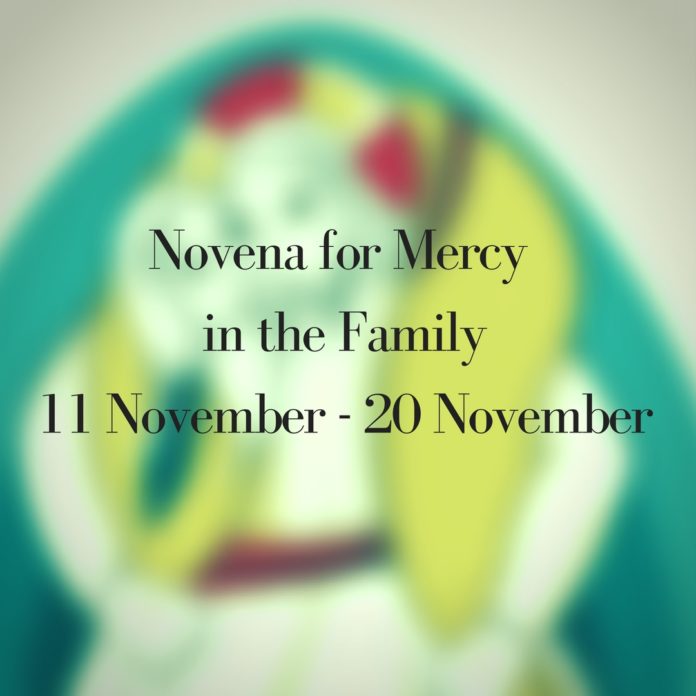
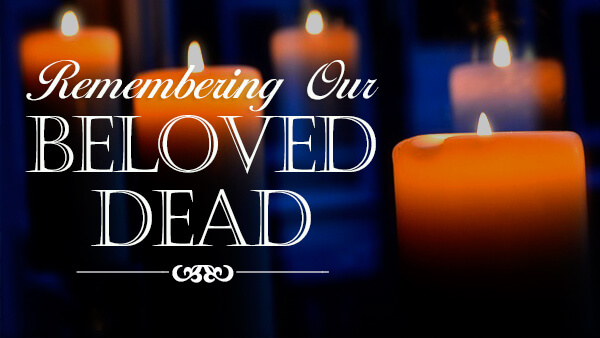
 The death has taken place, this morning, Tuesday, 15 November 2016, of Fr Arthur McAnerney, PE, AP, Parish of Magherafelt, in Antrim Hospital. May he rest in peace.
The death has taken place, this morning, Tuesday, 15 November 2016, of Fr Arthur McAnerney, PE, AP, Parish of Magherafelt, in Antrim Hospital. May he rest in peace.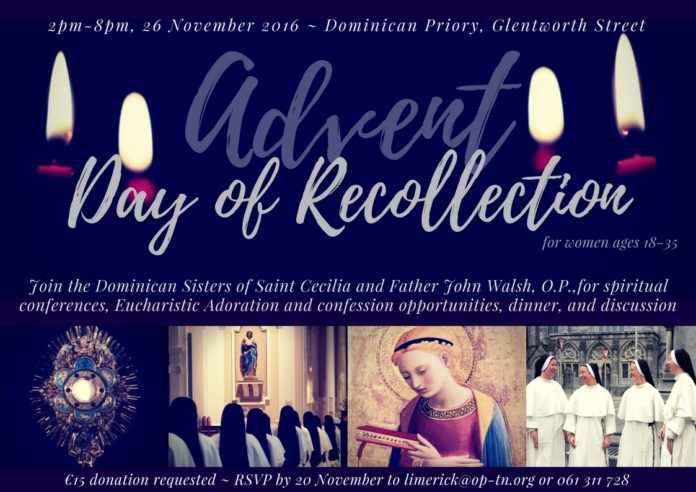
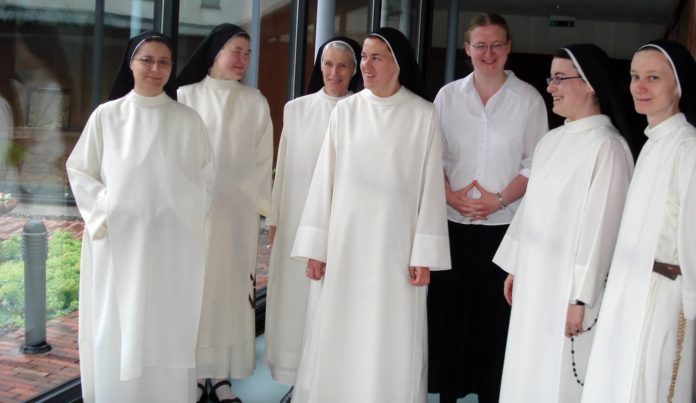


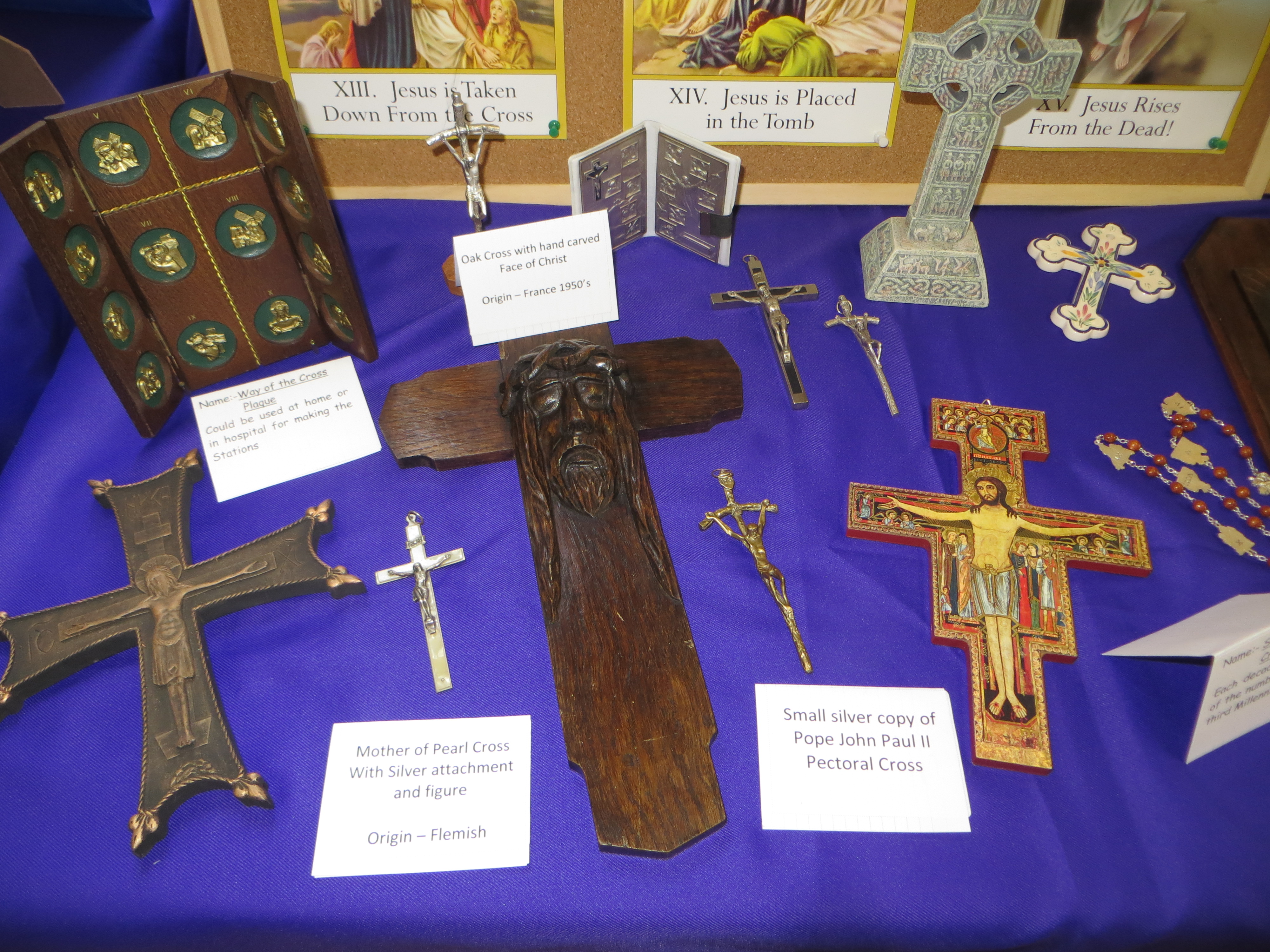



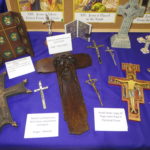



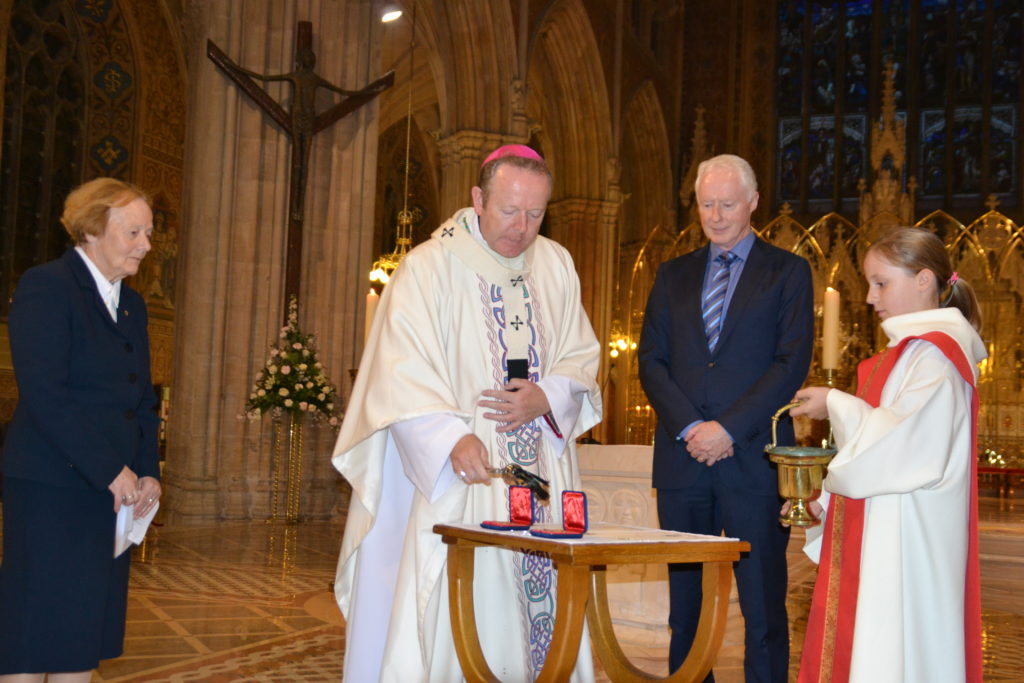

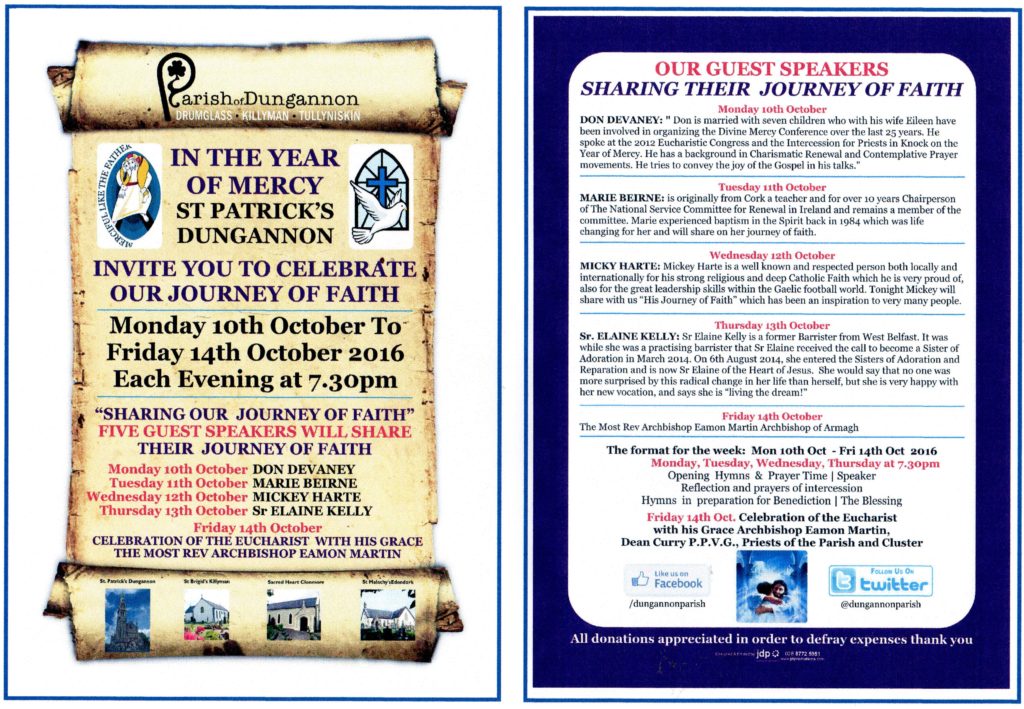
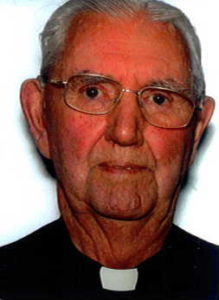
You must be logged in to post a comment.